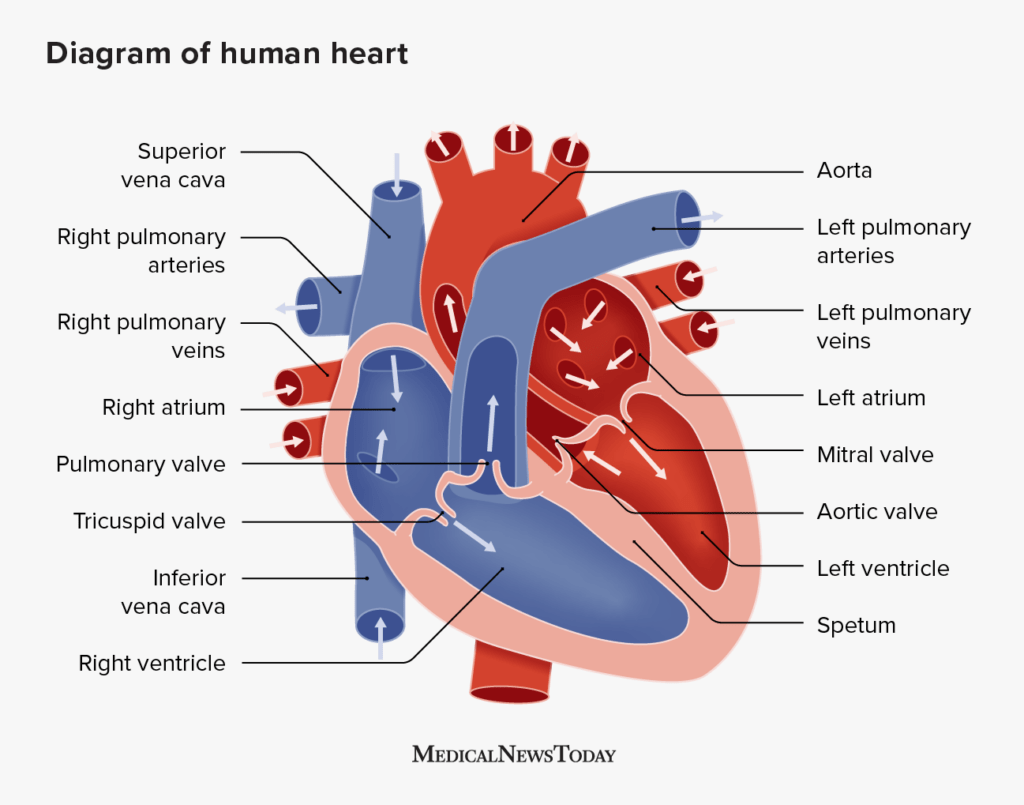A heart-healthy lifestyle has become increasingly important for Ghanaians. This is even more true with the rise in urbanization, changing diets and the tendency for people to be more stationary, especially with more remote jobs. These factors mean that cardiovascular diseases have gone up. In fact, it is now one of the leading causes of death in Ghana.
The World Health Organization (WHO) has pointed out that one’s lifestyle plays a key role in preventing cardiovascular diseases. In this article, we’d explore easy-to-implement steps Ghanaians can adopt for a healthier lifestyle. This will protect their hearts, and subsequently, their lives.
Understanding the Heart Disease Situation in Ghana
Essentially, heart failure occurs when the heart is unable to pump blood as well as it should. In Ghana, this is often as a result of one of uncontrolled hypertension, obesity, diabetes or poor diet. Sometimes, it’s all of those factors in one. A Pan African Medical Journal study reported that over 70% of adults with High blood Pressure (HBP) were receiving inadequate treatment. It also reported that 13% had their BP under control.
This backs up the point that prevention through a lifestyle adjustment is crucial.

Nutrition: Building a Strong Heart from the Plate Up
Health starts from the plate, and the Ghana Health Service recommends food rich with vegetables, fruits, grans and lean proteins. A balanced diet reduces cholesterol accumulation, helping you to control your weight and hence, regulate blood pressure.
This can include:
- Cooking kontomire stew with less oil and more leafy greens.
- Choosing boiled plantain over fried plantain.
- Eating beans and garri for plant-based protein.
- Adding fresh fruits such as mango, pawpaw, and oranges to daily meals.
On the other hand, overconsumption of deep-fried foods, sugary drinks, and heavily salted meals has been linked to an increase in heart-related problems.
Staying Active: Movement as Medicine
Staying active is key as regular exercise strengthens the heart, improves blood circulation and helps with weight control. This is often not the reality in Ghana though, as most activities see people spend more time sitting in cars or at home.
Affordable ways to stay active include:
- Walking to the market or work when possible.
- Joining community sports or church dance groups.
- Using a skipping rope or doing bodyweight exercises at home.
According to Frontiers in Public Health, just 150 minutes of moderate exercise per week can significantly reduce heart disease risk.
Emotional Resilience and Stress Control
It may not seem like it, but stress can cause heart problems, especially when individuals don’t manage it well. Building emotional resilience is an effective, and perhaps the most reliable form of stress control. Stress control will reduce the chances of cardiovascular ailments.
In Ghana, resilience can be cultivated through:
- Prayer, meditation, and mindfulness for inner calm.
- Support networks in family, church, and community groups.
- Limiting alcohol intake and avoiding smoking.
A study on hypertension patients in Ghana found that those with stronger social support and coping strategies had better health outcomes.

Early Detection: The Role of Health Checks
An often overlooked aspect of a healthy life is the place of health checks. Most diseases, especially heart diseases, can be solved if they’re detected early. Unfortunately, in Ghana, most people only visit the hospital when symptoms become severe. It is good to regularly screen for blood pressure, cholesterol and blood sugar to help early detection.
The Ghana Heart Initiative has increased access to affordable heart health checks across several regions. Community health campaigns complement these efforts, helping prevent heart disease before it becomes life-threatening.
A Youth-Driven Future for Heart Health
Young people represent Ghana’s future. Promoting heart-healthy habits early through schools, youth clubs, and empowerment programs ensures a healthier adult population. Encouraging physical activity, nutritious eating, and stress awareness among youth can shift the national health trajectory over the long term.

Conclusion
Adopting a heart-healthy lifestyle in Ghana is both achievable and necessary. By making mindful food choices, staying active, managing stress, and attending regular health checks, Ghanaians can significantly reduce their risk of heart failure. Prevention is not only healthier—it is also far more affordable than treatment. The path to a stronger heart begins with small, consistent actions taken today.
If you enjoyed this article, we’re happy you did. You can join the community here at Inside Success Ghana. Subscribe to get access to the jobs, training and education we have for the youths.




Leave a Reply